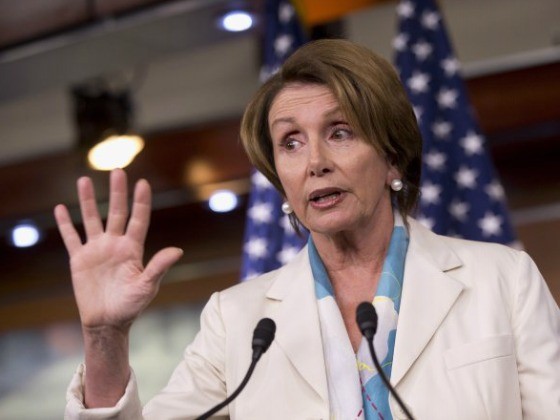
Facing an increasingly hostile political landscape, Democrats are turning an old adage upside down; asking voters to believe what the candidates say, not what they do. In districts across the country, Democrats are campaigning on tax cuts, balanced budgets and rolling back harmful regulations. This pivot away from the national Democrat party isn’t just on fiscal issues. With more conservative positions on guns, fracking and coal, for example, Democrat candidates, effectively, are practically carving out their own third party.
Last year, Texas state Sen. Wendy Davis filibustered her way into liberal, feminist rock-stardom with an 11-hour stand against legislation restricting some forms of late-term abortion. She leveraged the national spotlight into a run for Governor in the Lone Star State. That election will be decided by voters in places like Laredo, though, not San Francisco. On the campaign trail, Sen. Davis has claimed that she is pro-life and does, in fact, support restrictions on late-term abortions.
In West Virginia, Democrat Senate candidate Natalie Tennant is struggling to separate herself from the Obama Administration and its severe regulations on coal mining, an important economic sector in the state. In a bizarre campaign ad, she “cuts power” to the White House. Four years ago, Sen. Joe Manchin aired an ad of himself shooting a bullet through the Obama’s “cap and trade” bill. Fortunately, Tennant and Manchin are both Democrats, so no one will view the stunts as threats to the President.
Kentucky Democrat Senate candidate Alison Lundergan Grimes touts her NRA membership on the campaign trail, while Georgia Democrat Senate candidate Michelle Nunn hedges on the issue, but stresses her belief in the Second Amendment and loudly proclaims her family’s hunting heritage. In Arizona, embattled Democrat Rep. Ron Barber’s first campaign ad brags about “bucking party leadership” and calls for increased border security.
In Colorado, Democrat officials blocked a series of ballot initiatives, championed by leftist Rep. Jared Pollis, that would restrict oil and gas exploration in the state. While popular with left-wing environmentalists and billionaire Democrat donors like Tom Steyer, Democrats rightfully worried that the restrictions would be unpopular with voters in November.
The list of Democrats carving out more conservative positions on a host of issues goes on and on. In fact, it would be noteworthy to find any Democrat in a competitive election running on the platform espoused by national leaders. It begs the question, what is the point of the national Democrat party if individual candidates have to separate themselves from it when facing actual voters. Is it even a coherent party, or just a collection of expedient alliances of interest groups?
Planned Parenthood, apparently, can stomach a Democrat candidate who calls herself “pro-life” if that candidate can make Texas competitive, politically.
The Democrat wave in 2006 was fueled, in large part, by public weariness with the Iraq War and the Bush Administration. One overlooked aspect of this victory, though, was the aggressiveness of then-Rep. Rahm Emanuel to recruit moderate and conservative Democrats to run for office. This strategy worked so well that before the GOP landslide in 2010, 54 members of the House Democrat caucus were conservative “blue dog democrats.” With only 14 “blue dogs” now serving in Congress, this mythical creature has all but disappeared from the political landscape.
With support for Obama and his policies nearing record lows, Democrats in Congress are again trying to pull off this trick.

COMMENTS
Please let us know if you're having issues with commenting.